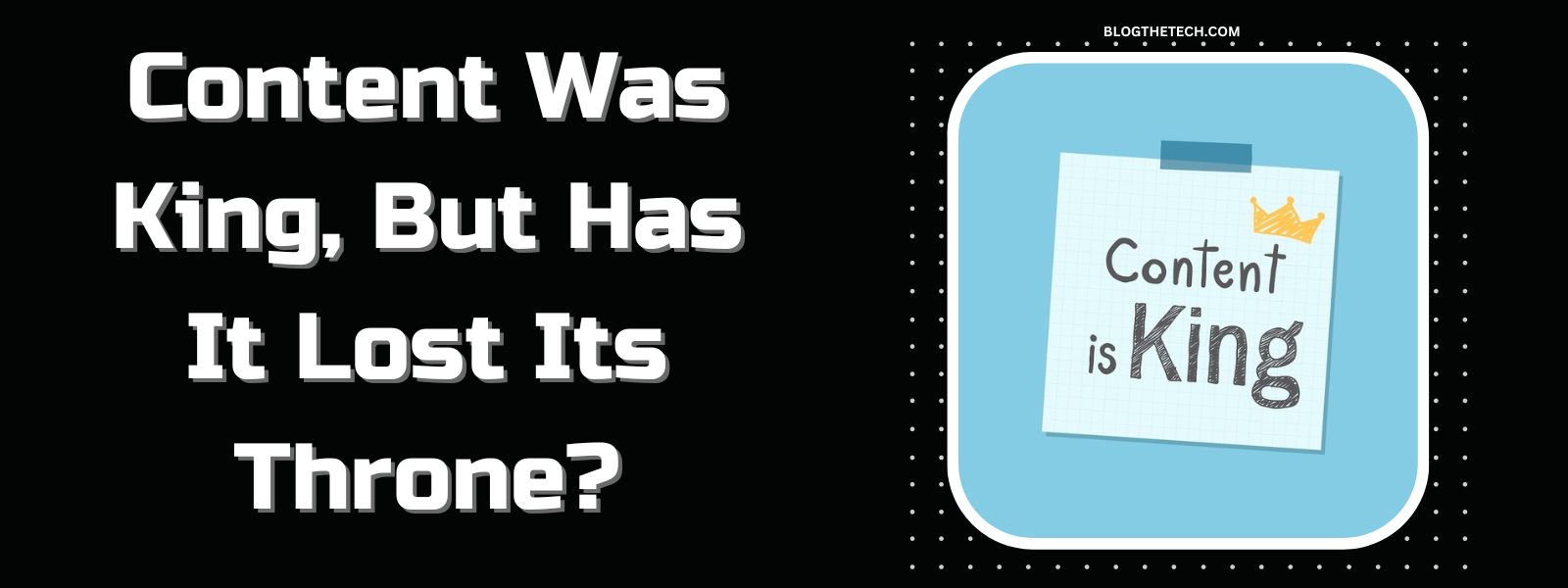Digital marketers who have been practicing for a decade or longer still remember the original rollout of the now-familiar phrase “content is king.” It’s a concise way of describing just how valuable good content is when it’s placed at the heart of an overall digital marketing campaign.
But now that we face complications like oversaturation, changing levels of user engagement, and AI, can we confidently say that content is still king?
The Concept of “Content Is King”
The “content is king” concept was absolutely true. A decade ago, the best players in the digital marketing industry were ones with the most robust content strategies.
That’s because content does many things simultaneously and is completely detached from antiquated advertising approaches. After decades of being completely overwhelmed with aggressive, straightforward ads, consumers began to ignore them as a muddled mess of white noise. Content stood out because it didn’t seem like advertising, because it presented real value, and because consumers had to seek it out, rather than being bombarded with it. It’s an inbound approach that tries to give consumers something valuable before asking them to make a purchase or another important decision.
In this respect, content is king because it serves customers more naturally and organically.
Content is also king because of the potential value it holds. The content you develop is typically in the form of permanent assets, which continue to provide value to your brand for years, if not decades, to come. Content is inarguably indispensable for search engine optimization (SEO), which was and still is one of the most powerful marketing strategies around. Content can be reformatted and reused in a wide variety of applications, and can be utilized in the context of email marketing, social media marketing, and other campaigns.
On top of that, content could be used for conversion optimization, motivating your website visitors to take meaningful actions that lead to revenue. In other words, a good content strategy could pull people in and get them to spend money.
Also, content development is a relatively inexpensive strategy. Good content, especially with good placement, is somewhat expensive – but it still pales in comparison to other marketing and advertising strategies.
Reasons for Skepticism
So why are there any people claiming that content is no longer king?
To be fair, there are some reasons for skepticism.
- Oversaturation. In the early 2010s, content was still a relatively new phenomenon. Today, everyone knows what content marketing is and how it works. The market has, accordingly, become somewhat oversaturated. There are millions of articles on every conceivable topic, making it increasingly hard to stand out.
- Declining SEO value? A combination of search engines seeking more ad revenue and more people trying to exploit search engines means that the average search user has been noticing a slightly reduced experience. More people are complaining about the quality of online search and turning to alternative channels like social media. Even so, Google still serves more than 1.2 trillion searches per year, and seems to be indefinitely growing. This momentum is unlikely to abate anytime soon.
- AI and content thinning. Hoping to cut costs and still capitalize on content value, millions of brands have resorted to cheap tactics and AI to produce content and distribute it at scale. This has led to an overabundance of low-quality, somewhat frustrating content, aggravating business owners, content marketers, and readers alike.
- Alternative channels. Some people have pulled away from content marketing because they’ve been pulled toward alternative channels. And truthfully, there are some new digital marketing routes that can rival (or even exceed) content marketing in terms of value. New social media channels, influencer marketing, and community building campaigns have proven to be extremely profitable for some brands.
Why Content Is Still King

But even acknowledging these changes in drawbacks, content is still king. It’s still the heart of any SEO campaign. It’s still an effective inbound strategy. It’s still effective for conversion optimization and is a prerequisite for becoming a thought leader in any industry. And if you know what you’re doing, you can develop an archive of valuable content assets inexpensively.
The only caveat is that you may need to update your tactics:
- Focus on quality, not quantity. Now more than ever, it’s important to focus on quality instead of quantity. It’s much better to produce a single, highly valuable blog post than hundreds of keyword-stuffed monstrosities.
- Adopt an omnichannel approach. Content and SEO are still very useful, but they aren’t the only players worth considering. Adopt an omnichannel approach to reach more people and see more value; it’s also an easy way to make your best content go further.
- Stand out with better work. It is frustrating to compete with players who don’t seem to take content seriously, but if you get past this frustration, you’ll see it as a competitive advantage. If all your closest rivals are producing garbage content at lightning speeds, it’s an opportunity for you to stand out with better work. If you do everything they do, but better, your shared audience will inevitably choose you over the others.
Content marketing is still alive. In fact, we can assert that content is still “king.” But if you want to survive in these changing dynamics, you’ll need to help your content strategy evolve.




